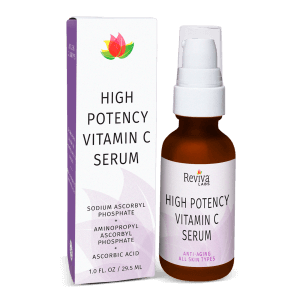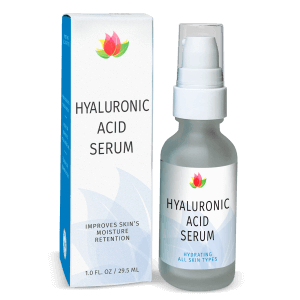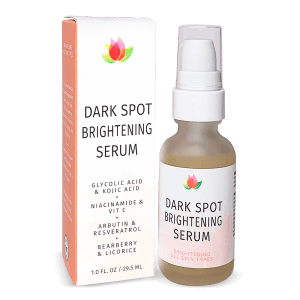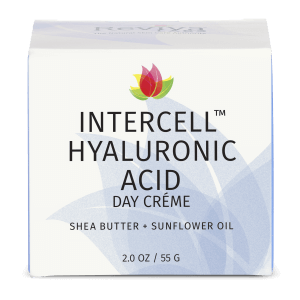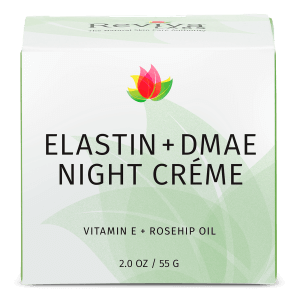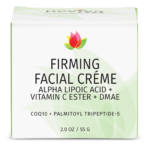Clean Beauty, Reviva Labs, Skin Care
Are Good Genes or Good Skincare the Key to Great Skin?
The pursuit of glowing, flawless skin feels universal, doesn’t it? But when it comes to achieving it, there’s often one big question: is great skin the result of inheriting good genes, or does it come down to what you put on your face every day? While some people seem to have been handed a perfect complexion at birth, others work tirelessly with skincare routines and still face challenges. So, which factor holds more weight? Let’s explore the science behind genetics and skincare to understand how they influence the health and appearance of your skin.
The Genetic Foundation: How Much Do Genes Influence Your Skin?
Your genes play a significant role in determining your skin type, tone, and tendencies. They control the size of your pores, how much oil your skin produces, and even how quickly your skin shows signs of aging. If your parents have oily skin or are prone to acne, there’s a good chance you might experience the same issues. Similarly, those who inherited thicker skin might naturally have fewer wrinkles as they age.
Research published in the Journal of Investigative Dermatology highlights that genetic factors account for approximately 60% of visible aging, such as wrinkles and sagging. This means more than half of how your skin looks as you age can be traced to your DNA—but it also leaves 40% in the hands of external factors, like your skincare routine, diet, and environment.
However, genetics aren’t destiny. While they establish a baseline, they don’t entirely determine how your skin will behave throughout your life. Even with a genetic predisposition to acne, for instance, it’s possible to manage breakouts effectively with the right skincare.
What Your DNA Can’t Control
Genes can’t protect you from UV damage, pollution, or the effects of poor habits like smoking. These external factors play a massive role in skin health and aging. Studies show that sun exposure alone is responsible for up to 80% of visible signs of skin aging.
Lifestyle choices—including diet, hydration, sleep quality, and stress management—also directly impact your skin. For example, high sugar intake can contribute to glycation, a process that damages collagen and elastin, making skin look less firm and youthful. In these cases, skincare becomes an essential tool to mitigate damage and boost your skin’s resilience.
The Power of Good Skincare – What It Can Do (and What It Can’t)
A consistent and well-planned skincare routine can dramatically improve your skin’s appearance, regardless of genetics. Skincare works to protect your skin from environmental harm, repair existing damage, and maintain its natural barrier. Products with proven ingredients like retinoids, vitamin C, and peptides actively address concerns like fine lines, dark spots, and loss of elasticity.
For example, studies show that topical retinoids can increase collagen production and speed up cell turnover, effectively reducing wrinkles and improving texture. Vitamin C, another powerhouse ingredient, has been shown to brighten skin tone and neutralize free radicals caused by pollution and sun exposure.
But—and this is a crucial point—skincare can’t completely override genetics. If you have a genetic predisposition to deep wrinkles or pigmentation, even the best products will have limitations. Skincare is about optimizing what you have and preventing further damage.

Genes vs. Skincare – How They Work Together
It’s not a competition between good genes and good skincare—it’s a partnership. Think of your genes as the blueprint and your skincare routine as the maintenance plan. If you’re genetically predisposed to dry skin, for instance, you might need to incorporate more hydrating products like hyaluronic acid and ceramides. On the other hand, someone with naturally oily skin may benefit more from lightweight, mattifying formulas and exfoliants to control excess sebum.
One fascinating aspect of skincare is its ability to influence gene expression. Research in the field of epigenetics shows that certain topical ingredients, like retinoids, can modify how your genes behave. This means you can actually improve the way your skin functions at a cellular level, even if you weren’t born with ideal genetics.
The Role of Prevention – Start Early
Here’s a little skincare wisdom – the earlier you start caring for your skin, the better your results will be. Prevention is easier (and often less expensive) than correction. Sunscreen is the ultimate example of this. Daily SPF use has been proven to significantly reduce the risk of skin cancer and prevent premature aging. It’s a simple yet powerful way to keep your skin looking youthful, regardless of your genetic predisposition.
Adding antioxidants, like vitamin C or green tea extract, can further protect your skin by neutralizing free radicals. These steps may not feel revolutionary when you’re young, but they pay dividends as the years go by.
What If You Weren’t Born with “Good Skin”?
If you weren’t genetically blessed with clear, even, or resilient skin, don’t despair. There’s so much you can do to improve your skin’s health and appearance. Start by identifying your specific skin type and concerns, then build a routine around them.
For example:
- If you’re acne-prone, look for products with salicylic acid or benzoyl peroxide to control breakouts.
- If you’re dealing with redness or sensitivity, focus on calming ingredients like niacinamide or hemp oil.
- If your main concern is aging, prioritize retinoids, peptides, and hydrating serums.
Consistency is key. Skincare routines don’t produce overnight results, but with patience and the right products, you can see significant changes over time.
Balancing Realistic Expectations
At the end of the day, genetics and skincare both matter, but neither offers a magic fix. Even those with “perfect” genes can struggle with their skin if they neglect basic care. Likewise, someone with challenging genetics can achieve glowing, healthy skin with the right habits and products.
Your skin is a living, dynamic organ that’s constantly changing. Treating it well—through both daily skincare and a healthy lifestyle—is the best way to see it thrive. So, whether you’ve been gifted with great genes or not, the power to improve your skin is firmly in your hands.







